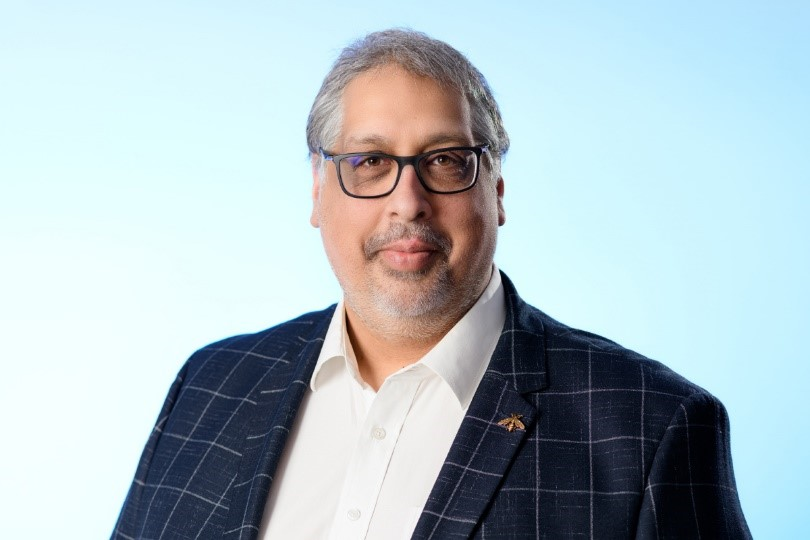Broughton's Chief Scientific and Regulatory Officer Dr. Nveed Chaudhary discusses the recent FDA announcement on marketing orders and what this means for ENDS manufacturers.
PSYCH Symposium 2023
Events

Aug 1, 2023 | Published by Dr. Nveed Chaudhary
Events, Psychedelics
Broughton’s Chief Scientific and Regulatory Officer, Dr. Nveed Chaudhary, recently attended the Psych Symposium at the British Museum, London, and has shared his thoughts from the event.
With psychedelics being a new area for me, I wasn’t sure what to expect before attending the event. It started with the presentation of some interesting and thought-provoking facts, such as every 40 seconds someone in the world commits suicide, and there are 320 million people worldwide who suffer from chronic depression, with current anti-depressant therapies proving ineffective for 100 million of those people.
The event consisted of 12 panel sessions looking at the potential of psychedelic therapies in treating mental health conditions. Below I outline the sessions I found most interesting and stimulated my desire to get more involved in this exciting new potential treatment area for medical conditions that affect so many people around the world.
The first-panel session focused on how psychedelic therapies can be used to treat patients. Several clinical trials are taking place around the world where psychedelic therapies are being tested and assessed for treating conditions such as anorexia and chronic depression. Using psychedelic therapy for mental health problems is not a traditional way of improving or managing mental health. However, there is an increasing amount of emerging scientific evidence that psychedelic therapy could potentially even cure some mental health problems, which is unheard of with traditional treatments.
Before the conference, I had heard a lot about psychedelic micro-dosing. I had just assumed these clinical trials were about administrating a small number of micro doses to drive some clinical efficacy but without the hallucinogenic and psychedelic effects that are commonly associated with these drugs. What I learned at the event surprised me; the avoidance of the hallucinogenic trip isn’t the goal, as the trip is what creates clinical efficacy.
Many mental health conditions are caused due to an abhorrent reward mechanism in the brain. Something that can be described as a sort of de-synchronisation between the body and mind. Professor Rebecca Park (Oxford University) and Rivki Stern (Shortwave Pharma) spoke about a neural process where the flow of information within the brain becomes rigid. The psychedelic trip creates a high degree of neuroplasticity, and this helps rebuild neuronal connections in the brain, which allows the information that has become ‘stuck’ in the brain to start flowing successfully again.
A later panel session with Dr. Chris Timmerman and Matthew Wolf (Imperial University) illustrated how functioning MRI scans show these novel neuronal connections being made and information flowing to new parts of the brain after a psychedelic trip. Later in this session, it was clear that the link between the molecular effects of the molecules in the brain and the functional effects (i.e., the psychedelic trip) enables the clinical effects and clinical outcomes that we see in terms of improved mental health.
Professor Celia Morgan (University of Exeter) gave a fantastic presentation on the psychedelic uses of Ketamine. It is known to have significant psychedelic effects despite not being classified as a psychedelic. Clinical trials are running at the University of Exeter using Ketamine to treat gambling addiction and alcohol use disorder. The Ketamine for the Reduction of Alcoholic Relapse (KARE) study has been running for six months studying alcohol use disorder in 96 patients. All patients received seven 1.5-hour treatment sessions with Ketamine supported by a digital app for mindfulness. The results showed that after six months, 86% had completely abstained from alcohol altogether, and this change was mirrored by an improvement in liver function.
Another panel discussion was dedicated to the topic of access to psychedelic medicines. There are difficulties in getting psychedelic medicines approved with the panel highlighting that regulations eee very different between the US/Australia and UK/Europe. In the USA and Australia, there is no drug reimbursement, so everything needs to be done via private health care systems, whereas in the UK and Europe, once a drug gets medicinal marketing authorisation there is a discussion that needs to be had about reimbursement from private health insurance companies or where countries have National Health Services, from the state. Reimbursing authorities want to pay as little as possible, and psychedelic medicines coupled with guided therapy sessions, are a much more expensive form of treatment than antidepressants and other existing forms of medication. The general feeling at the conference was that insurance companies would currently be highly reluctant to reimburse the cost of psychedelic medicines and guided therapy.
The next panel session focused on the future of psychedelic medicine in Europe. It provided a bit of hope for the industry. An all-party committee has been set up to examine the whole pharmaceutical supply chain and regulations in the EU. There will be discussions around possible legal reform around psychedelics; however, it is not thought likely to result in any sudden changes overnight. The party is advocating that the lack of efficacy of current anti-depressants in a high number of people and the continuous cost of this treatment means the ability of psychedelics with assisted therapy in the long-term could be more economically viable.
The most interesting panel for me was at the end of the day, called ‘Clearing a path for treatment – the importance of facilitators and therapists. I learned that the therapist’s role is essential for effective treatment, and a high level of trust needs to be built between the therapist and the patient. When the patient has a strong level of trust in the facilitator to completely let go and fall deeper into the hallucinogenic experience, the stronger and more robust the neuroplasticity and novel synaptic connections are, thus improving the efficacy of the treatment.
In conclusion, it was evident that psychedelics are very different from any other medicinal drug. They are naturally occurring substances, and there will need to be a significant mindset change within the scientific and public health communities for them to be seen as suitable treatments for mental health problems. The need to build trust with a therapist is something that many people are still uncomfortable with, but there seems to be a direct correlation between the level of trust between the therapist and patient and the clinical outcomes of the psychedelic experience within a clinical setting.
An extremely interesting event that provided much input for future thoughts and research areas.


